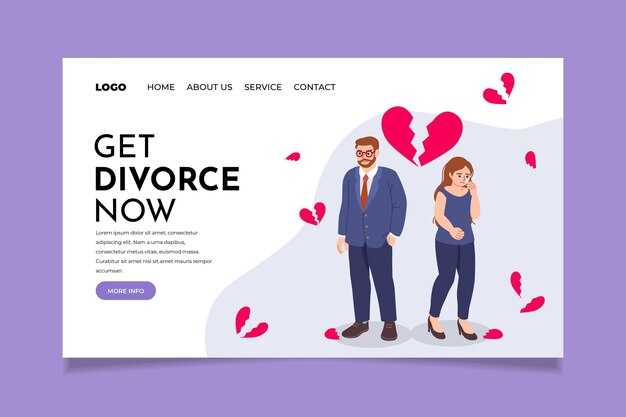Someone in the comments claimed that women don’t want men to be vulnerable — apparently I wasn’t aware of that either until they pointed it out. If you’re a man paying attention, don’t miss this: that commentator could not be more mistaken. His understanding of vulnerability is skewed, and it’s a safe bet he isn’t in a healthy, thriving relationship. If you take his counsel, you’ll likely end up alone — and you’ll blame others for your unhappiness in romance, the way emotionally immature people often do. Many of you were raised to see weakness as unattractive to women, and because vulnerability is equated with weakness, you instinctively avoid it. That’s a false conclusion. Now don’t get me wrong — some people confuse vulnerability with weakness, and being weak in certain ways is indeed unattractive. But let’s define what real weakness looks like: one, an inability to connect emotionally: you don’t recognize your own feelings and you don’t care about hers; emotions make you uncomfortable and seem pointless, so you shut yours down and expect her to do the same. Two, failing to invite or welcome her honesty about feeling neglected or hurt: when you dismiss, invalidate, gaslight, make excuses, get defensive, or always play the victim and act attacked, it’s rooted in insecurity and a fear of actually engaging with her emotions — that isn’t strength. Three, pride: your ego makes you treat her as inferior, so you belittle, insult, or demean her because you must appear dominant and in control. Outsiders who observe you often see that as weakness, not power. A strong man treats her with respect; a confident man honors her; a secure man values her. That doesn’t mean she’s right about everything or that emotions are facts, but if you love someone you listen, try to understand, and show care even when you disagree with why she feels a certain way. That’s what empathy and love look like. Empathy, vulnerability, emotional connection, honest communication, and intimacy — despite what you may have been told — are essential for a relationship to flourish, and they’re attractive to the right women. When a man dares to be open, to name his feelings, to examine fears and insecurities, to let his partner into his inner world — sharing dreams, hopes, desires, love, and joy — it can feel risky, especially for guys who find that hard. If revealing that inner life threatens a partnership, that dynamic was unhealthy from the start, because yes, some people will exploit vulnerability — some women do play games or neglect men, just as some men neglect women. That doesn’t mean we abandon vulnerability. You wouldn’t give up cheeseburgers after a cholesterol scare, so don’t abandon your emotional openness for the wrong reasons. Okay men, I know this is getting long and I’ve probably lost most of you — maybe only Frank is still listening (wake up, Frank). I heard “sex” — whatever you hope to get from a relationship, whether it’s sex, closeness, companionship, friendship, respect, or honor, I’m certain vulnerability is part of the road that leads there. Shutting down emotionally, closing off, building walls, becoming numb or distant only produces more distance and disconnection — the opposite of what you say you want. Give vulnerability a chance and prove me wrong.
Why vulnerability matters
Vulnerability creates connection. It tells your partner you trust them with your inner life, and trust is the foundation of intimacy. When you allow yourself to be seen — including your fears, mistakes, and longings — you invite reciprocation. That mutual openness deepens attraction, improves conflict resolution, reduces resentment, and makes both partners feel safer and more understood.
What vulnerability is — and isn’t
- Vulnerability is not constant collapse or unfiltered oversharing. It’s selective, honest disclosure that invites dialogue, not drama.
- Vulnerability is not neediness. Being vulnerable with boundaries and self-awareness signals maturity: you can lean and still stand on your own feet.
- Vulnerability is not weakness; refusing to be vulnerable out of fear or pride is often the real weakness because it prevents growth and intimacy.
How to practice vulnerability (practical steps)
- Start small: name one feeling a day. “I felt anxious today when…” or “I’m proud of….” Little disclosures build habit and trust.
- Use “I” statements: describe your internal experience rather than blaming. “I felt hurt when…” beats “You made me feel…”.
- Ask for what you need: vulnerability includes requests. “I’d like more help with X” or “Can we spend more time together?”
- Listen and validate: when she shares, reflect back what you hear. “It sounds like you felt ignored” shows engagement without necessarily agreeing.
- Own your part and repair: apologize clearly when you mess up and describe what you’ll do differently.
- Build emotional vocabulary: learn words for feelings beyond angry/sad—frustrated, disappointed, lonely, overwhelmed—so you can be precise.
- Practice physical closeness with emotional check-ins: hold hands, make eye contact, and pair it with simple emotional honesty.
- Seek support if needed: therapy or coaching helps men learn to be vulnerable safely and effectively.
How to protect yourself and set healthy boundaries
- Vulnerability isn’t permission for someone to exploit you. If your openness is used against you (shaming, manipulation, chronic dismissiveness), that’s a red flag.
- Set limits: be clear about what’s okay and what isn’t. “I’m willing to share this, but I won’t accept being belittled for it.”
- Look for reciprocity over time. Healthy partners respond with empathy and their own disclosures; exploiters repeatedly take without giving back.
- Trust actions more than words: consistency in behavior shows respect for your vulnerability.
Conversation starters and small exercises

- Daily check-in (2–5 minutes): each share one high and one low from your day and what you needed.
- Five-minute vulnerability practice: set a timer. One person shares something small they worry about; the other listens without fixing, then reflects back.
- Journaling prompt to share: “A time I felt ashamed and what I learned from it.” Share the entry with your partner if comfortable.
- Ask curious questions: “What would make you feel more connected to me?” or “When do you feel most loved by me?”
- Repair ritual: after a fight, name one thing you appreciate about each other to remind yourselves of the relationship’s value.
Common obstacles — and how to move through them
- Fear of rejection: remember that avoiding vulnerability to prevent pain often guarantees loneliness. Test the waters gradually.
- Defensiveness: when you feel attacked, take a breath, use “I” statements, and ask for a moment if you need to calm down before responding.
- History of betrayal: take safety slowly. It’s okay to be cautious while still practicing smaller acts of openness.
Final thought: vulnerability is a skill, not a single act. It grows with practice, humility, and consistency. Being open doesn’t mean being naive — it means choosing connection over the false safety of walls. If you want closeness, respect, and real partnership, give vulnerability a try, protect yourself with boundaries, and measure people by how they respond to your honesty.


 Women don’t want a vulnerable Man">
Women don’t want a vulnerable Man">

 Mi ego no podía soportar su HONESTIDAD, ¿el tuyo puede?">
Mi ego no podía soportar su HONESTIDAD, ¿el tuyo puede?">
 Cuando sientes que eres Compañeros de piso en tu Relación">
Cuando sientes que eres Compañeros de piso en tu Relación">
 The Single Greatest Predictor of Divorce is…">
The Single Greatest Predictor of Divorce is…">
 Do THEY care about YOUR needs? || How to succeed in Relationships">
Do THEY care about YOUR needs? || How to succeed in Relationships">
 Their Life Is a Mess and THEY BLAME YOU">
Their Life Is a Mess and THEY BLAME YOU">
 Por qué Siempre Estás Atascado (No es Pereza, es Trauma) + Cómo Liberarte">
Por qué Siempre Estás Atascado (No es Pereza, es Trauma) + Cómo Liberarte">
 No desperdicies tu Relación como yo lo hice.">
No desperdicies tu Relación como yo lo hice.">
 This Is How Avoidants Possess You Physically And Mentally And You Never Even Notice | Mel Robbins">
This Is How Avoidants Possess You Physically And Mentally And You Never Even Notice | Mel Robbins">
 I asked my Wife about Sexual Consent, didn’t go great.">
I asked my Wife about Sexual Consent, didn’t go great.">
 Why Avoidants Act Fine After the Breakup And Why They Always Come Back | Mel Robbins Best Speech">
Why Avoidants Act Fine After the Breakup And Why They Always Come Back | Mel Robbins Best Speech">